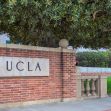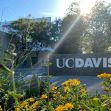Two students at the University of California, Riverside, were expelled for violating campus conduct and disciplinary rules designed to protect the health and safety of pledges who want to join fraternities. The students petitioned the University for reinstatement, claiming they were denied due process at their administrative hearing. The trial judge denied their petition and the Court of Appeal affirmed stating, “…given the nature of the charges and (the plaintiffs) response,” they were “afforded everything they were due.”
The case began in May 2019 when the University’s Office of Student Conduct and Academic Integrity (SCAIP) received a report about the health of a member of the pledge class at Phi Gamma Delta (PGD). At the time of the report, Chad Ayach and Joseph Nofal were officers in the fraternity. Nofal was chapter president and Chaya was “disciplinarian” for the pledge campaign. The report prompted an investigation during which SCAIP members interviewed several PGD pledges, who reported among other things, that members of their pledge class were subjected to punishing workouts and mock kidnappings, shot with a stun gun, required to perform household tasks, forced to wear feminine clothes to a party, and were auctioned off to bidders for dates. Extensive use of prohibited alcohol was also reported.
SCAIP informed the plaintiffs that their violations of the University’s pledge rules were undergoing administrative review, and they were given an opportunity to “provide information that clarifies their involvement…” Three specific violations were involved: physical abuse of pledges; engaging in conduct that could cause physical injury to pledges; and alcohol use. Nofal denied that the conduct had taken place and said that if he knew about it, he would not have condoned it. He also told SCAIP he knew the identity of Student A, who was the subject of the initial report.
After denying that PGD had a “disciplinarian,” Ayach’s purported role, Nofal changed his testimony two weeks later and admitted that most of the initial charges, including the use of a taser gun, were true. Ayach did not attend the review in person but confirmed the taser episode in writing. He said the date auction was not mandatory and denied most alcohol use, but admitted that big and little brothers would often compete to see who could drink “Irish car bombs,” a combination of beer and liquor, faster.
The findings of the initial hearing were referred to the full student conduct committee that invited both Ayach and Nofal to attend a pre-hearing meeting where they could “learn the rules.” At the hearing, the names of those who had been interviewed were “replaced with initials.” This adhered to campus rules, which also prevented those charged with the right to “compel individuals to testify.”
In November 2019, Ayach was dismissed from the University for violating university policies and for giving several conflicting statements. He appealed to the campus vice chancellor, alleging that Riverside had denied his right to cross-examine witnesses, identified only by initials. The same month, Nofal was also expelled, because as PGD chapter president, he could have prevented the prohibited hazing activities. Nofal’s appeal to the University was also denied.
Both plaintiffs then appealed to the Superior Court of Los Angeles County, where then-Judge Mitchell L. Beckloff affirmed the students’ expulsion from UC Riverside. Both plaintiffs appealed, alleging (1) their investigation was not meaningful because the names of certain witnesses were redacted, (2) they were not allowed to cross-examine witnesses, (3) the victim of the alleged kidnapping did not appear, and (4) the committee was biased. Both students then appealed to Division One of California’s Second District Court of Appeal, which unanimously affirmed Beckloff’s ruling in an unpublished opinion authored by Presiding Justice Francis Rothschild.
Rothschild began by citing precedent that held that in order to prevail at trial, the appellants would have to have shown that Riverside “(1) acted without, or in excess of, its jurisdiction; (2) deprived dress judicial hearing but one giving the student a full opportunity to present his defenses.”
She then explained that none of plaintiffs arguments were persuasive, as they all relied on cases that said students accused of sexual misconduct did not get fair hearings when they were not allowed to confront or cross-examine the witnesses against them.” She emphasized that sexual misconduct hearings, unlike the pledging violations, presented “unique circumstances”… which “turn on witness credibility.”
She distinguished the pledging violations because the plaintiffs’ expulsions did not “depend on the credibility of adverse witnesses,” and the accounts of both Nofal and Ayach were similar to those of witnesses because there was no actual dispute about the facts. That said, the opinion moved on to discuss whether the University hearings were fair, given precedent that determined students have “no blanket right to cross-examination, confrontation, or witness identity disclosure in all student disciplinary proceedings.”
She concluded that denial of these rights “did not restrict Nofal’s and Ayach’s abilities to
present…defenses” and neither did the University’s decision to not identify witnesses by name. In addition, the plaintiffs admitted that they knew the identity of some of the witnesses, but failed to ask them to appear.
On behalf of the court, Rothschild said, “…we conclude that the hearings before the committee afforded Nofal and Ayach due process, and find no reversible error in the lower court’s denial of their writ petition challenging that hearing.”






